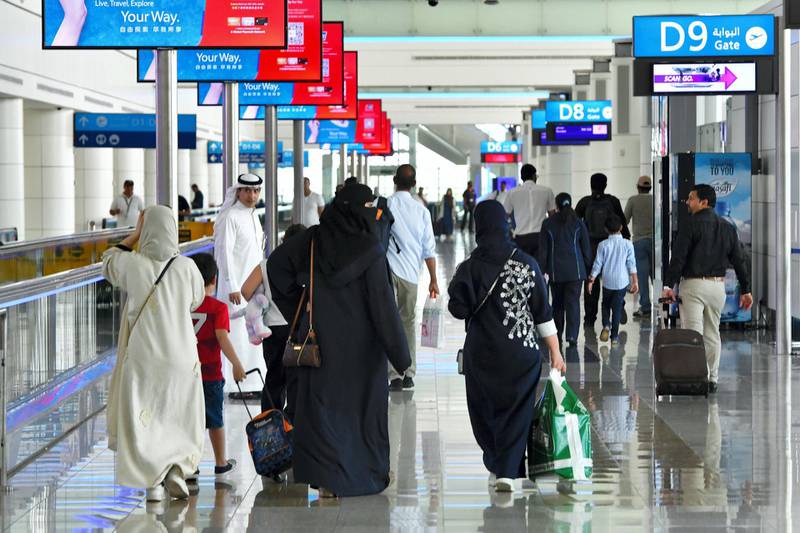‘I have been with my employer since February and still don’t have a work visa’

The company I work for has not obtained an Emirates ID card for me. I joined the company in February 2021 and they told me they would process my visa. But until now, I don’t have a valid visa or Emirates ID. This means I cannot even buy a local SIM card.
Three months ago, I went for a medical test and fingerprinting but still do not have an ID card. I went to Amer to check my status and discovered that I have been marked as overstaying.
I met the management of the company, who said they were dealing with the issue. They have deducted about Dh3,000 from my salary for the visa cost. What action can I take that will not affect my job as I need my ID card? JN, Dubai
The Labour Law is very clear on this: all foreign workers who are employed in the UAE must have a residency visa and an identity card issued soon after they arrive in the country. A work permit is also required.
It is against the law for an employer to fail to provide these documents and illegal for an employee to work without them. Both JN and the employer are breaking the law as he has been working without these documents for nine months.
Employers should make an application for the visa by the time an individual starts work. It is unusual that the medical examination took place many months after JN started work, but stranger still that the visa has still not been issued.
Given the situation, it is possible that the employer's application has been declined due to previous failures to arrange visas as the Ministry of Human Resources and Emiratisation (MoHRE) can put a block on visa issuances if there have been previous complaints.
JN is working illegally as he does not have a current visa. That is why Amer, which is part of the General Directorate of Residency and Foreigners Affairs, said he has overstayed because he does not have a valid visa. He is also not protected by the Labour Law. The employer can be fined and JN can be both fined and potentially deported.
He is also liable to pay overstay fines. Assuming he entered the UAE on a visit visa, the fines are Dh200 for the first day and Dh100 for each subsequent day, as well as a service fee of Dh100. JN is liable for this fine even if the employer has not sorted out the visa.
The employer has charged JN for the visa but, as I have covered in this column many times, the visa cost is the employer’s responsibility and they are not permitted to pass this on to the employee.
Not having a work visa also means JN cannot register a case with the MoHRE, which leaves him in a difficult situation. I am a salesman in a medium-sized company in Abu Dhabi. I have a fixed salary and am also entitled to commissions.
Sales have been subdued this year, not only for me but for all sales staff, mainly because of issues related to the Covid-19 pandemic. So, my colleagues and I are not hitting our sales targets.
Our manager told us that if we don’t hit our targets, the company will deduct money from our salaries until we achieve them.
I checked my employment contract and there is nothing in it that states I will get a lower basic salary if I don’t reach my targets. Can the company do this to us? GP, Abu Dhabi
Employers are not permitted to arbitrarily reduce salaries or change any other agreed contract conditions. Any changes must be agreed by an employee in writing and submitted to the MoHRE.
The UAE Labour Law includes a section that covers disciplinary rules and, while an employee can be fined if they break a serious rule, this does not apply to work-related performance.
GP and his colleagues need to point this out to the employer. If the company goes ahead with the salary reduction, they can register a case against the employer.
Keren Bobker is an independent financial adviser and senior partner with Holborn Assets in Dubai, with more than 25 years’ experience. Contact her at keren@holbornassets.com. Follow her on Twitter at @FinancialUAE. The advice provided in our columns does not constitute legal advice and is provided for information only
